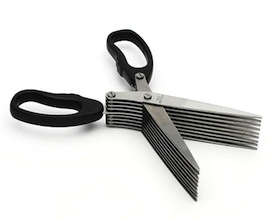
Als strateeg geloof ik in de eenvoud van heldere keuzes. Je moet goed weten wat je wel doet en nauwkeurig beslissen wat je niet doet.
Tegelijkertijd leert het digitale tijdperk ons het belang van snelle prototypes en gewoon proberen & zien wat er gebeurt: release early, release often.
Keuzes zijn in dit geval niet altijd helder, de realiteit bepaalt welke overleven. Het geeft een eigentijdse uitleg aan Mao’s ‘Let a thousend flowers bloom’: plant een hoop zaaitjes, je ziet vanzelf welke bloemen het beste bloeien.
Zojuist kwam ik bij Tom Peters deze quote tegen van Arie de Geus, de vader van scenarioplanning bij Shell. Deze geeft een mooie visie op het spanningsveld tussen de twee. En hij gaat ook over bloemen ;).
“Rose gardeners face a choice every spring. The long-term fate of a rose garden depends on this decision. If you want to have the largest and most glorious roses of the neighborhood, you will prune hard. This represents a policy of low tolerance and tight control. You force the plant to make the maximum use of its available resources, by putting them into the rose’s ‘core business.’ Pruning hard is a dangerous policy in an unpredictable environment. Thus, if you are in a spot where you know nature may play tricks on you, you may opt for a policy of high tolerance. You will never have the biggest roses, but you have a much-enhanced chance of having roses every year. You will achieve a gradual renewal of the plant. In short, tolerant pruning achieves two ends: (1) It makes it easier to cope with unexpected environmental changes. (2) It leads to a continuous restructuring of the plant. The policy of tolerance admittedly wastes resources—the extra buds drain away nutrients from the main stem. But in an unpredictable environment, this policy of tolerance makes the rose healthier in the long run.”
De quote komt uit het boek The Living Company, via Google kun je er hier doorheen bladeren. En hier kun je het netjes kopen.
